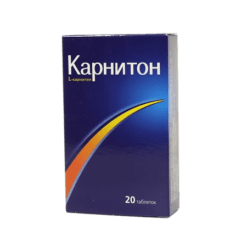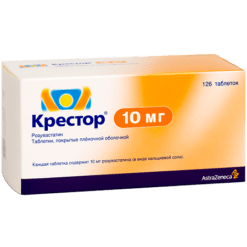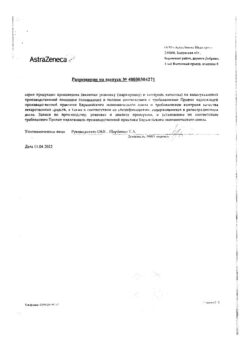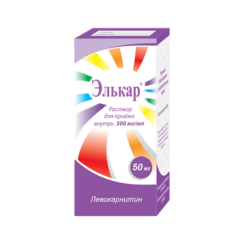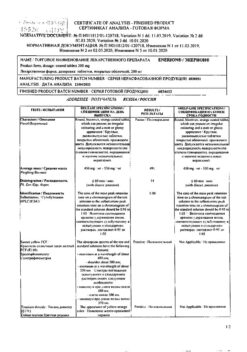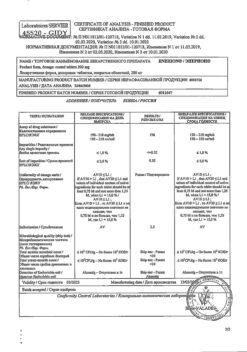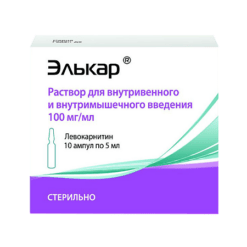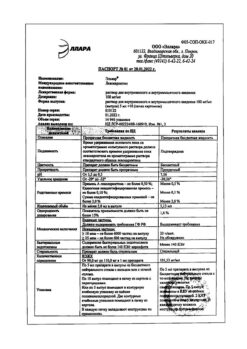No products in the cart.
Xenalten, 120 mg capsules, 21 pcs.
€1.00
Out of stock
(E-mail when Stock is available)
Description
Xenalten is a specific inhibitor of gastrointestinal lipases.
The drug binds in the lumen of the stomach and small intestine to the active serine site of gastric and pancreatic lipases. It impedes breakdown of fats coming with food in the form of TG. They are not absorbed, accordingly, the body gets much fewer calories, because of which it has to spend the available reserves. This allows you to lose weight. The content of fats in stools increases after 1-2 days.
Fat from food is inhibited by the active ingredient of the drug by about 30%.
The degree of absorption of the drug is low. It is not detected in the plasma after 8 hours of use.
The systemic exposure is minimal. After oral administration, the degree of binding to plasma proteins is 99%. It is broken down mainly in the gastrointestinal tract to form inactive metabolites. The elimination half-life is about 1-2 hours. It is excreted mainly through the intestine or with bile.
Indications
Indications
The main use of Xenalten is for obesity. It can be used in combination with a hypocaloric diet. In addition, the drug is often used to reduce the likelihood of weight gain again after successful weight loss. It can also be used for risk factors such as diabetes, dyslipidemia, and arterial hypertension.
Active ingredient
Active ingredient
Composition
Composition
1 capsule contains:
The active ingredient: orlistat 120 mg;
Excipients: MCC, 59.6 mg; sodium carboxymethyl starch (sodium starch glycolate), 38 mg; sodium lauryl sulfate, 10 mg; povidone, 10 mg; talc, 2.4 mg.
How to take, the dosage
How to take, the dosage
Overly, 120 mg 3 times daily with each meal or no later than 1 hour after a meal (if the food is fat-free, you can skip it).
Interaction
Interaction
Orlistat has no effect on the pharmacokinetics of alcohol, digoxin (administered in a single dose) and phenytoin (administered in a single dose of 300 mg), on the bioavailability of nifedipine (sustained-release tablets), ovulatory-suppressive activity of oral contraceptives, pharmacokinetics (both R- and S-enantiomers), and pharmacodynamics (prothrombin time and factor VII levels) of warfarin. Alcohol had no effect on the pharmacodynamics (fecal fat excretion) and systemic exposure of orlistat.
Preliminary data shows that concomitant use of orlistat and cyclosporine decreases plasma levels of the latter (orlistat and cyclosporine should not be taken simultaneously; to decrease the possibility of drug interaction, cyclosporine should be taken 2 hours before or 2 hours after taking orlistat). Orlistat decreases absorption of beta-carotene contained in food supplements by 30% and inhibits absorption of vitamin E (in the form of tocopherol acetate) by approximately 60%.
Limits the bioavailability and hypolipidemic effect of pravastatin by increasing its plasma concentration by 30%. Reduces absorption of fat-soluble vitamins. The effect of orlistat on the absorption of vitamins D, A contained in supplements is currently unknown. Although levels of carboxylated osteocalcin, a marker of dietary vitamin K intake, were not altered by taking orlistat, people who took orlistat showed a trend toward lower vitamin K levels.
Lowering body weight may improve metabolism in diabetic patients, and therefore the dose of oral hypoglycemic drugs should be reduced. No clinically significant interactions with digoxin, phenytoin, oral contraceptives, nifedipine, glibenclamide, furosemide, captopril, atenolol, and ethanol were noted.
Special Instructions
Special Instructions
With caution use in pregnancy and lactation, with a history of hyperoxaluria, nephrolithiasis (calcium oxalate stones).
When treating, it is necessary to maintain a balanced, low-calorie diet containing no more than 30% of calories in the form of fat and enriched with fruits and vegetables (additional prescription of multivitamins is possible to compensate for the reduced absorption of fat-soluble vitamins).
Before prescribing orlistat, an organic cause of obesity, such as hypothyroidism, should be excluded. The likelihood of gastrointestinal side effects increases with high dietary fat content (more than 30% of daily calories). Daily intake of fats, carbohydrates and proteins should be distributed between three main meals. Since orlistat reduces absorption of some fat-soluble vitamins, patients should take multivitamin preparations containing fat-soluble vitamins to ensure their adequate intake. In addition, vitamin D and beta-carotene levels may be lower in obese patients than in people who are not obese. Multivitamins should be taken 2 hours before or 2 hours after taking orlistat, e.g., before bedtime. Taking orlistat in doses greater than 120 mg 3 times a day does not provide additional benefit. In patients taking orlistat and cyclosporine concomitantly, more frequent monitoring of plasma cyclosporine is required.
In patients who did not receive prophylactic vitamin supplements, two or more consecutive visits during the first and second years of treatment with orlistat showed decreased plasma vitamin levels. Urinary oxalate levels may increase in some patients on orlistat. As for other drugs for weight loss, in some groups of patients (e.g., with anorexia nervosa or bulimia) there is a possibility of orlistat abuse.
Because absorption of vitamin K may decrease when taking orlistat, clotting parameters should be closely monitored in patients receiving orlistat on long-term continuous warfarin.
The induction of weight loss with orlistat may be combined with improved metabolic control of diabetes, which would require reduction of doses of oral hypoglycemic agents (sulfonylurea derivatives, metformin, etc.) or insulin.
The treatment should not last more than 2 years. Xenalten is not intended for use in pediatric practice.
Contraindications
Contraindications
Side effects
Side effects
Gastrointestinal organs: oily discharge, flatulence, urgent defecation, oily/oily stools, increased frequency of defecation, stool incontinence, abdominal pain/discomfort, nausea, infectious diarrhea, rectal pain/discomfort, vomiting.
Nervous system and sensory organs: headache, dizziness, fatigue, sleep disturbance, anxiety, depression.
Respiratory system disorders: upper respiratory tract infections, lower respiratory tract infections, ENT symptoms, otitis media.
Urogenital system disorders: irregular menstrual cycle, vaginitis, urinary system infections.
Musculoskeletal system: back pain, pain in the lower extremities, arthralgia, myalgia, joint dysfunction, tendonitis.
Skin disorders: rash, dry skin.
Others: flu, swelling of the feet, allergic reactions.
Pregnancy use
Pregnancy use
Orlistat is contraindicated in pregnancy due to the lack of reliable clinical data confirming the safety of its use.
Similarities
Similarities
Additional information
| Shelf life | 2 years |
|---|---|
| Conditions of storage | In a dry, light-protected place at a temperature not exceeding 25 °C |
| Manufacturer | Obolenskoe FP JSC, Russia |
| Medication form | capsules |
| Brand | Obolenskoe FP JSC |
Related products
Buy Xenalten, 120 mg capsules, 21 pcs. with delivery to USA, UK, Europe and over 120 other countries.


